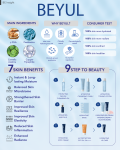What is Heart Disease?
Heart disease, or cardiovascular diseases, are the diseases that affect the heart and circulatory system. Coronary heart disease, which is defined as the narrowing of blood vessels caused by plaque, is one of the main killers not only in Malaysia but also internationally.[1,2] As blood flow to the heart decreases, your chances of getting a heart attack will rise. There are several types of heart diseases including:[3,4]
Coronary Heart Disease – The narrowing of blood vessels caused by plaque which can lead to an increased risk of heart attacks.
Arrhythmia – Irregular or uneven heartbeat. This condition if left untreated could lead to increased risk of stroke.
Congenital Heart Disease – Usually seen in infants or children, it is due to birth defects that affect the normal way the heart works.
Heart Failure – Occurs when the heart cannot effectively pump blood to parts of the body.
Heart Valve Disease – The valves in the heart ensure that blood flows in the right direction. If the valve is unable to close properly, it can cause a backflow of blood which can lead to heart failure.
Symptoms of Heart Diseases
Different heart diseases will have different symptoms. The most common symptoms of heart disease are:[5]
– Chest pain
– Shortness of breath
– Heart Palpitations
– Fatigue
– Numbness or Weakness of the limbs (especially on the left side).
– Pain in the jaw, neck, upper abdomen, or back.
Causes of Heart Diseases
While some heart diseases are present from birth and cannot be avoided, there also exists certain habits and actions that increase one’s chances of developing heart diseases, such as:[6]
Smoking – The use of tobacco contributes to 20% of deaths from coronary heart diseases. Smoking can lower the HDL (good cholesterol) in your body, making blood sticky and more likely to clot, damaging blood vessels, increase plaque buildup, and causing the thickening of blood vessels.
Eating a high fat diet – Taking in too much fat increases the fat accumulation in your blood which leads to increased plaque buildup, thus increasing the risk of heart attacks.
Diabetes – Excess sugar in the blood can produce substances that can damage the blood vessels, causing increased plaque formation that blocks blood vessels.
High Blood Pressure – It is a medical condition where the blood pressure in the blood vessels is too high. This can injure the wall of the vessels, which causes further damage to your heart.
Overweight/Obesity – The accumulation of bad cholesterol in the arteries can cause increased plaque buildup, blocking or restricting blood flow.
Inactivity – Being inactive leads to an increased risk of gaining weight, thus an increased risk
of heart disease.
You’ve only got one heart! So, you must protect it at all costs!
Understanding the risks and symptoms of heart disease can help you identify the problem early and prevent it from getting worse.
References:
- Statistics on cause of death, Department of Statistics Malaysia Official Portal, 2021
- The top 10 causes of death, WHO, 2020
- Coronary heart disease, NHS UK
- Disease control priorities in developing countries, 2nd edition.
- Cardiovascular Diseases, WHO
- Know your risk for heart disease, Centers for Diseases Control and Prevention.



